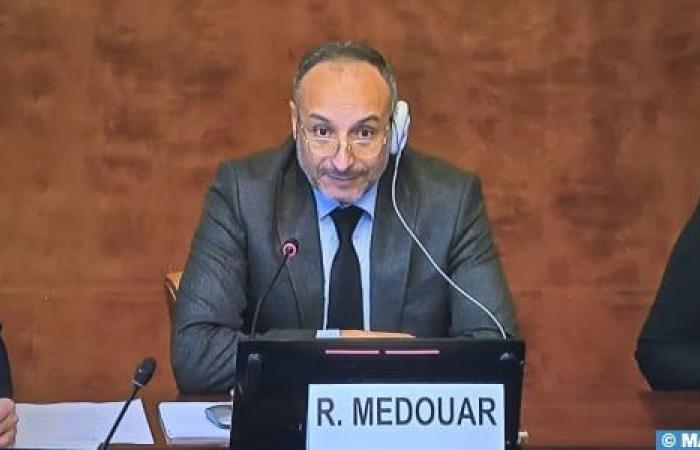
The Kingdom of Morocco is one of the first countries to propose an approach linking the fight against corruption and respect for human rights, said Monday in Geneva the vice-president of the National Probity Authority. of the prevention and fight against corruption (INPPLC), Rachid Medouar.
Speaking at an expert seminar of the Human Rights Council (HRC) on economic, social and cultural rights and the fight against corruption in the context of the post-Covid19 pandemic recovery, Mr. Medouar underlined , that Morocco, aware of the challenges presented by this nexus, has adopted a series of actions and measures to prevent and combat corruption with a human rights dimension.
He first cited the implementation of the first program of the National Anti-Corruption Strategy. Concerning “improvement of services to citizens”, this program aims to simplify administrative procedures, guarantee the right of citizens to submit their complaints and grievances concerning certain corrupt practices which affect their enjoyment of certain rights, such as the right to health, the right to education and the right to live in a healthy environment.
The vice-president of the INPPLC also discussed the adoption of Law No. 37.10 relating to the protection of victims, witnesses, experts and persons reporting crimes of corruption, embezzlement, abuse of influence and others, as well as Law No. 31.13 concerning the right of citizens to access information from different public services and institutions. Furthermore, the INPPLC has always emphasized the close relationship between prevention and the fight against corruption and the defense of human rights, whether through the direct treatment of this relationship in its annual reports or in a more global perspective through the report it published on the theme of “Citizen Engagement” , one of the vital areas falling within the competence of the Authority, he said.
According to him, the question of citizen engagement is based on two fundamental pillars, the first being linked to the importance of establishing a political and institutional landscape which offers the necessary conditions for the development of good public policies having a positive impact on citizens, including those related to the fight against corruption. As for the second pillar, it consists of the presence of citizens aware of the dangers of corruption for individuals and society, aware of their rights and duties and capable of assuming their responsibilities by rejecting and resisting acts of corruption, he continued.
This seminar, the opening of which was chaired by the ambassador, permanent representative of Morocco to UN-Geneva, in his capacity as president of the HRC, aims to deepen the understanding of the link between corruption and the realization of economic rights, social and cultural.
Held in accordance with HRC resolution 53/17, this event provided an opportunity to share best practices, review past achievements and challenges, and explore innovative solutions to ensure that efforts to combat corruption are more effectively linked to the protection of human rights, particularly in the context of a post-pandemic recovery.
With MAP





